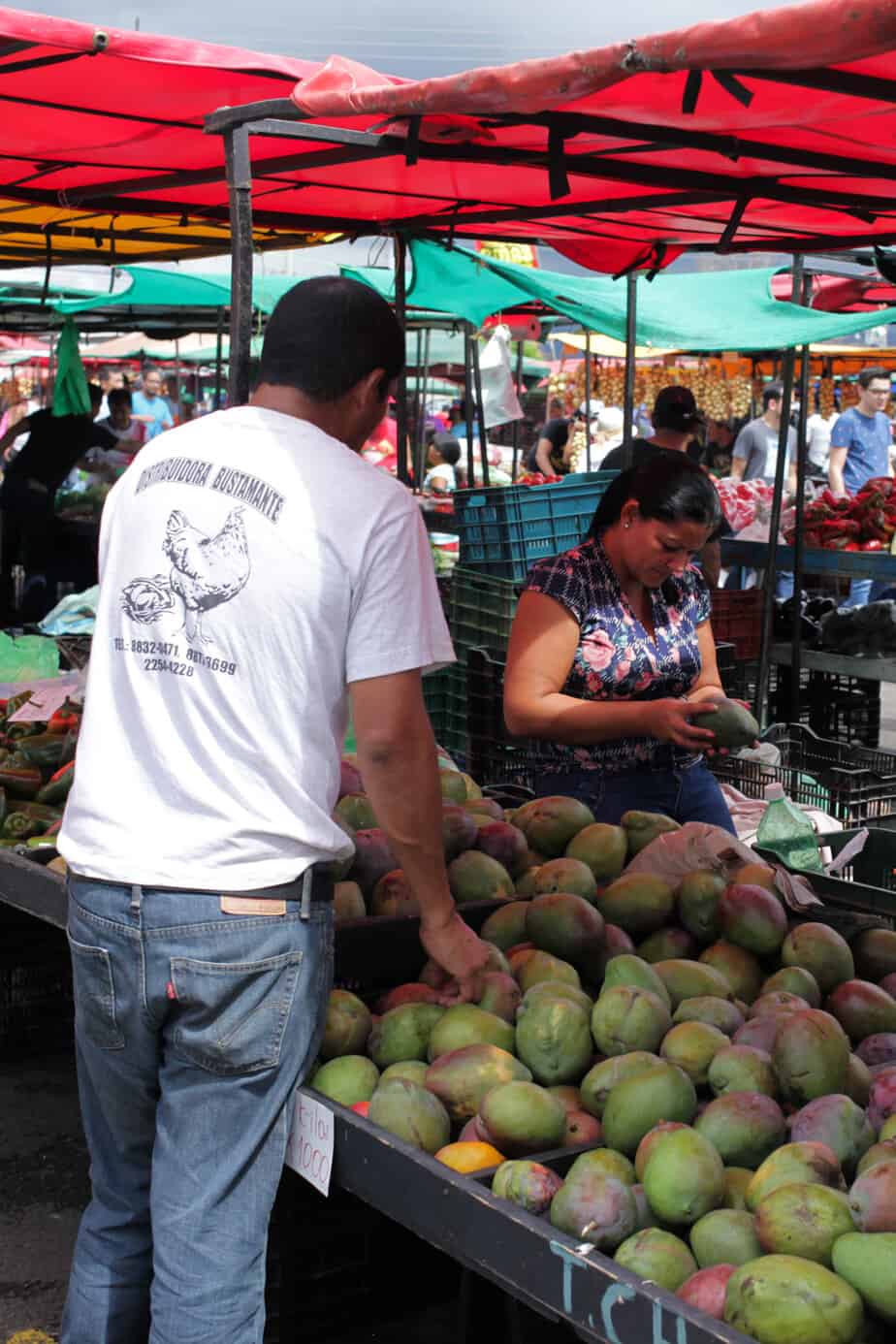The whitish powder that sometimes coats mangos and other fruits is the result of a misuse of a fungicide, probably Mancozeb, or a plant-growth regulator, most likely Ethrel. However, no produce should land on the shelves with residues of any agricultural chemical, according to Public Health Ministry toxicologist Eduardo Madrigal.
When applied before harvest, as they should be, both chemicals are rinsed off before they are loaded on the trucks, but when applied after, either to speed ripening, in the case of Ethrel, or to prevent rot, as in the case of Mancozeb, they leave a powder on the skin of the fruit or vegetable. Using chemicals after the harvest is illegal, Madrigal said, though the law does not punish those who break it.
Ethrel, produced by Bayer, is an agricultural chemical that speeds the ripening process and is used on crops such as sugarcane, tomatoes, macadamia, papaya and pineapples, according to Bayer’s Web site and is also registered for use on limes, mandarin oranges, tobacco and tomatoes in Costa Rica, according the Agricultural Ministry’s agricultural chemicals registry
It is sprayed on pineapple plants to speed the growth of flowers, which later become fruits, and it is sprayed on the fruits to quicken the ripening process. Ethrel breaks down into the chemical ethylene, a gas that fruits need to form sugars, which is how they ripen, said Guillermo Arrieta, manager of the Agriculture Ministry’s export supervisory department.
The blue bags you see around bunches of bananas still on the tree are doing the opposite – they contain a substance that absorbs ethylene and slows ripening, Arrieta said. Mancozeb, produced by DuPont, protects crops from fungal diseases. Two kinds of Mancozeb are registered for use in Costa Rica, according to the registry, and they are used on crops such as bananas, onions, cantaloupe, potatoes, papayas, tomatoes and beans.
Are Mancozeb and Ethrel safe? “(Ethrel) is not very toxic,”Arrieta said. “All chemicals are toxic; however naturally a product is made, it always has its cautions, but they (growth regulators) are not so toxic.” Extoxnet an online pesticide toxicity project by a coalition of U.S. universities, found Mancozeb was “practically nontoxic,” when absorbed orally and through the skin.
Mancozeb could cause damage to kidneys and livers if ingested regularly for several weeks, Madrigal said, but Ethrel is a “friendly enough” substance. Madrigal recommends rinsing the produce well and peeling it before eating. The international anti-pesticide-use group Pesticide Action Network maintains a pesticide database that lists Mancozeb and Ethrel, neither of which are restricted in the United States.
The database lists Ethrel as “slightly toxic” to “highly toxic,” and Mancozeb as “not acutely toxic.”






